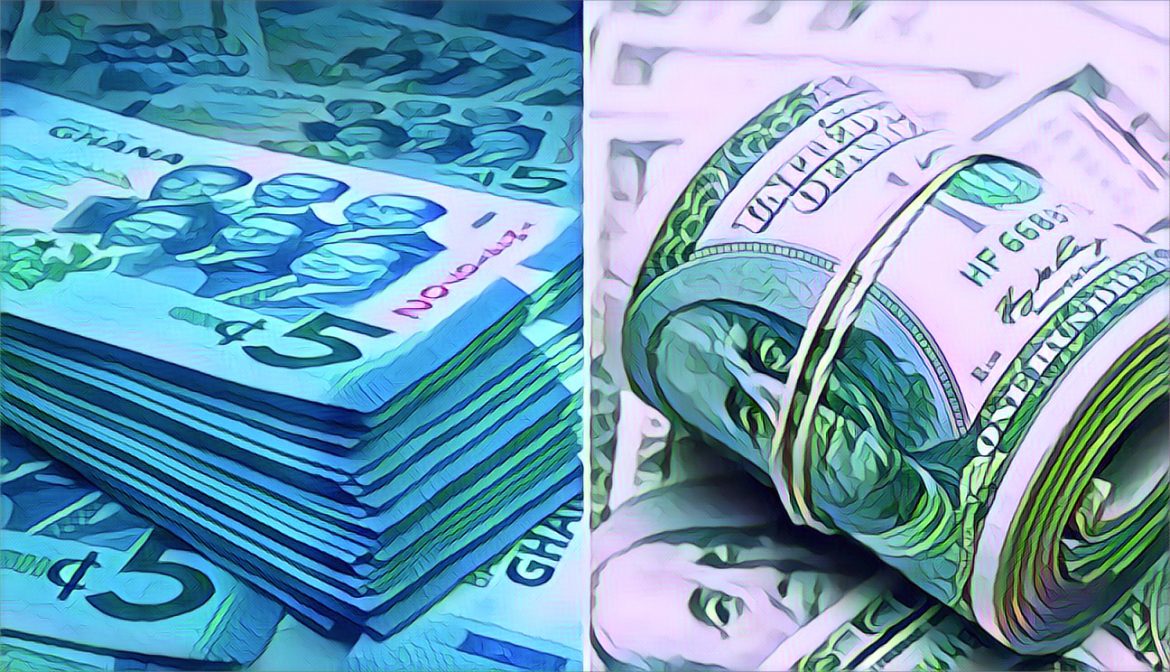The Ghanaian cedi concluded the year 2023 on a note of significant depreciation against the US dollar, reflecting a challenging economic landscape. In the retail market, the cedi saw a year-to-date depreciation of 15.57%, while in the interbank market, the depreciation was more pronounced at 27.81%. Despite these figures, Bloomberg did not categorize the cedi under either the ‘Best Spot Returns’ or ‘Worst Spot Returns’ categories.
On December 29, 2023, the last trading day of the year, Bloomberg rated the cedi at ¢11.95 to the US dollar. Contrastingly, forex bureaus priced the cedi higher, at ¢12.18 to the dollar. The Bank of Ghana’s quote stood slightly lower at ¢11.64 to the dollar, illustrating the variances in cedi valuations across different platforms.
The cedi’s performance in 2023 was largely shaped by the influence of a 3-year International Monetary Fund (IMF) program, which aimed to mitigate the sharp depreciation experienced in 2022 when the cedi lost about 50% of its value against the dollar. This IMF program was instrumental in stabilizing the cedi, as it led to reduced portfolio outflows and lower amortization payments for the country.
In a positive turn of events, Ghana’s current account recorded a surplus of $1.0 billion in 2023, a stark contrast to the $1.8 billion deficit recorded in the same period of 2022. This improvement in the current account, coupled with favorable developments in the capital and financial accounts, positively impacted the balance of payments, according to the Bank of Ghana.
As 2023 drew to a close, the demand for the US dollar eased, following the arrival of the first tranche of the Cocoa Syndicated Loan. This influx of foreign exchange was expected to enhance the supply-side intervention and bolster the cedi in the near term.
In the broader African context, the Guinea franc emerged as the best-performing currency of the year, according to Bloomberg. It gained 0.64% against the US dollar, followed by the Djiboutian franc, the Mauritian rupee, and the Mozambique new metical. In stark contrast, the Nigerian naira, Angola kwanza, and Malawi kwacha were among the worst-performing African currencies in 2023.
The cedi’s trajectory in 2023 paints a complex picture of an economy grappling with internal and external pressures. The IMF program provided much-needed support, but the fluctuations in the currency’s value underscore the ongoing challenges in Ghana’s economic landscape. The year’s performance also highlights the delicate balance Ghana must maintain in managing its foreign exchange reserves, capital inflows, and overall economic stability.
As Ghana moves into 2024, the lessons from 2023 will be crucial in shaping its economic policies and strategies. The government’s ability to navigate these challenges will be key to ensuring the cedi’s stability and, by extension, the country’s economic resilience. The focus will be on maintaining a balance between managing external debts, attracting foreign investment, and fostering a conducive environment for economic growth.
In conclusion, the Ghanaian cedi’s journey through 2023 is a testament to the resilience of Ghana’s economy in the face of adversity. While the depreciation against the dollar poses challenges, the IMF program and other positive economic indicators provide a foundation for cautious optimism. The coming year will be pivotal in determining whether these foundations can translate into sustained economic stability and growth for Ghana.




